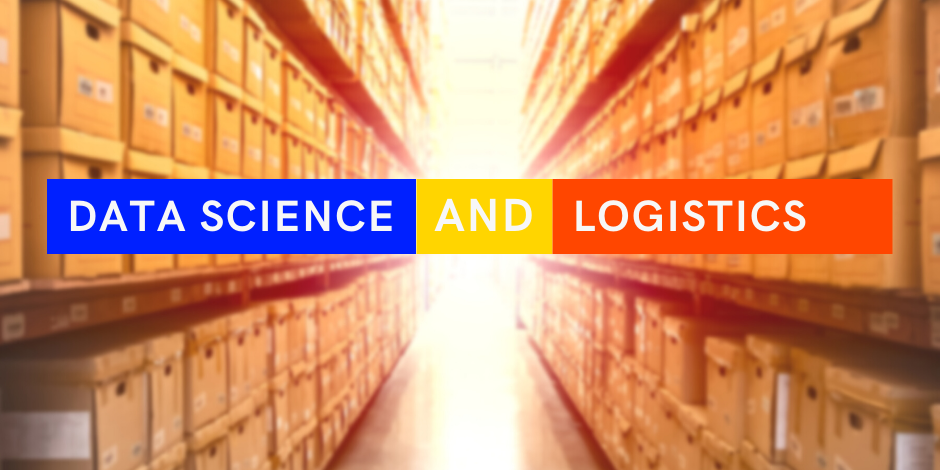How Data Science Helps Logistics Companies Make Smarter Moves

Stay Informed With Our Weekly Newsletter
Receive crucial updates on the ever-evolving landscape of technology and innovation.
Logistics companies have experienced a spike in demand during the pandemic. Online shoppers and panic buyers across the country resulted in an increase in wholesale and retail operations. Couriers and vendors expedited goods to multiple locations across the country to cope with the influx of orders and home deliveries.
But with every online purchase comes a trail of user data. The constant collection of data begs the question:
How can logistics companies leverage the pile of customer data collected?
Logistic giants such as DHL, UPS, Amazon, and FedEx have realized that investing in data science is a smart move in order to stay on top of consumer behaviors. Data science is emerging as the key to unlocking the potential of improving logistics companies to globalize operations.
1. Big data improves logistics operations and the customer experience
We live in a consumer-first world where we want things now. As a result, we are constantly striving to improve ourselves and the way we work to adapt to market demands.
Big data presents the opportunity to optimize performance across the board. Logistics companies are often challenged to automate and optimize their services. A 3PL survey reports that “70% of logistics companies agreed big data would be best applied to route optimisation.”
Amazon credits the expansion of its business to investing in big data, which has helped it to better understand its operations and customer base. This, says Amazon, has increased its customer base.
Route optimization assists logistics companies plan cost-effective strategies to improve operations and transport networks. It also helps to contend with unfavorable conditions such as high fuel costs, poor weather, and staff shortages.
UPS conducted a study using big data and discovered that it was more cost-effective if its trucks avoided turning left. This caused delays and was potentially more hazardous to oncoming traffic.
Logistics companies use big data to analyze market intelligence to better understand their customers, to tailor their services to exceed customers’ expectations and to improve customers’ experience. Logistics factors that diminish the customer experience, such as late deliveries and restricted global coverage, can be avoided by advanced predictive techniques and real-time processing.
2. Three examples of how data science provides a competitive advantage
Data science is an emerging field. The big logistics companies in APAC and worldwide, are only now starting to recognise the potential it has to transform global transport networks. Apart from route optimisation, data science provides a competitive advantage to other areas including:
- Enhanced transportation of goods
It is a big challenge for logistics companies to establish an efficient transport network capable of moving sensitive goods such as cosmetics and perishables. But a temperature sensor combined with artificial intelligence can determine the best conditions for sensitive goods and adapt the environment to ensure the goods remain fresh.
- An interconnected network of data
Logistics leaves a trail of market intelligence, and within it are hidden opportunities for improvements. Data science enables actionable insights to be extracted for a competitive advantage.
- Upgrading warehouse management
Data science provides innovative methods of warehouse management, enabling logistics companies to cut costs. An analysis of loading, carrying and delivering procedures can lead to more effective methods.
3. Big data can cut costs and help to implement better supply-chain planning
Only a small number of logistics companies have invested in utilizing big data to extract actionable insights to implement better supply-chain planning. Most companies have not considered the possibilities data science can have on their business. Most do not have the resources or time to invest in training their staff.
According to a 3PL survey, 80% of logistics companies attributed their enhanced supply-chain planning to insights derived from big data. The survey found that machine-learning algorithm forecasts helped supply-chain managers stay on top of warehouse management to the extent that costs were nearly halved. While that is a significant figure, many 3PL companies do not have a structure in place to create a data science team owing to the lack of talent available.
4. Why logistics is one of the best industries for people seeking data science careers
Logistics companies are rapidly evolving as a sector. Significant amounts of data provide many opportunities for data scientists to improve companies’ bottom lines. FedEx has been noted as one of the biggest employers of data science professionals because it relies on data science to optimize its logistics business and supply-chain planning.
Research carried out by Deloitte Consulting uncovered that only 24% of 400 logistics companies implemented data science to drive their business. As 70% of respondents wanted to hire data scientists, companies are aware of how data science can impact and transform businesses. Logistics giant DHL stated that there are just not enough people qualified with industry-focused data science skills.
5. The career prospects logistics companies offer globally
The global logistics industry has many career prospects for data science professionals. Human error is a big challenge for logistics companies, as most of their systems are not connected. With the help of big data and emerging technology, an interlinked network can eliminate errors and ensure operations are running as planned.
Logistic companies are always looking to hire data scientists to assist them with market intelligence and secure confidential information.
Make a smart move and upskill to data science
The logistics industry offers fulfilling career prospects. As they continue to improve operations, employees with data science skills will become valuable assets.
If you are interested in developing industry-focused data science skills for a rewarding role in logistics, schedule a call today.

